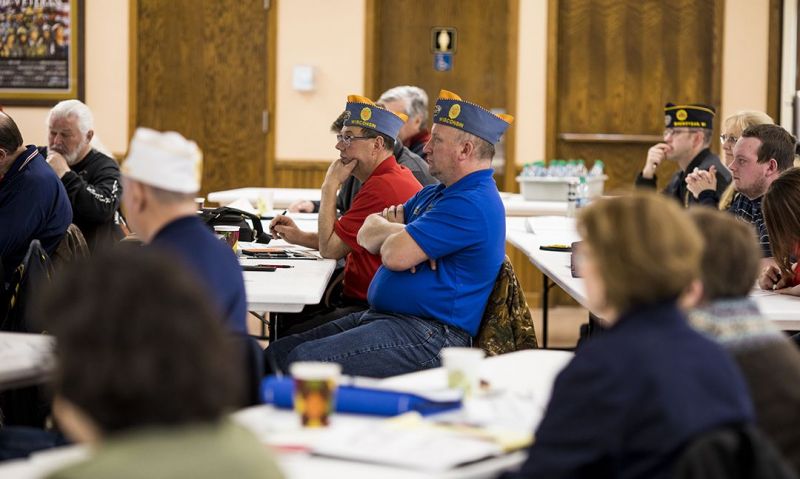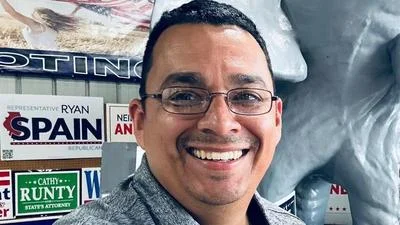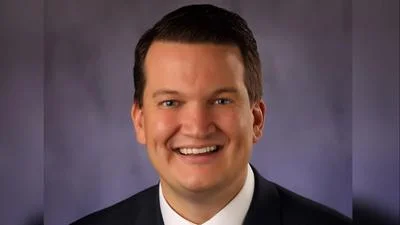American Legion issued the following announcement on April 2.
When Bob Shappell designed the Wisconsin American Legion College he wanted it to be more than leadership training for members. Alongside that important aspect, Shappell envisioned a way to use the class to develop solutions that could be used within the entire American Legion Family in the Badger State.
Shappell, dean of Wisconsin Legion College, is among the instructors who go around the state to teach each of the three levels. Each level — beginner, intermediate and advanced — is taught over the course of a full day.
“Each one goes into a little more in depth,” said Shappell, a National Executive Committeeman and member of Post 288 in Cedarburg. “We cover everything involving Legion topics and history. It’s pretty hard-core leadership. In the advanced course we have about a two and a half hour block on advanced recruiting and retention. Then we talk about some unique topics, and talk about the future of the American Legion just to get them thinking.”
On March 31, a 29-member class increased the total to about 150 Wisconsin Legion Family members who have graduated the three-level Department of Wisconsin American Legion College since it began in 2015.
Before the ceremony, the class broke into small groups and worked together to find solutions to potential real-life scenarios. Among them: a new post commander wants to engage newer post members but some longtime members are resistant. The groups studied various personas of post members and developed solutions.
When presenting to the class, Shawn Grothe, a member of the Sons of The American Legion (SAL), noted it was important to create teams where the younger veterans could work together. “We wanted to pair the two Iraq vets together, and saw that Claire was probably also an Iraq vet, so we wanted to get her involved as well,” he said, referencing one of the personas.
It was more than just creating teams based on demographics. The groups also examined the skill sets and identified people with backgrounds that would be suitable for different tasks.
“When we looked at their skills, their experiences and their personalities, we tried to blend it so they could help get membership going,” explained Diane Burkhalter, a member of the American Legion Auxiliary.
Wisconsin’s Legion College was designed to include all branches of the Legion Family tree.
“The college is designed for anybody who wants to learn,” said Julie Muhle, who is the college chancellor and the department membership chairman. “We encourage Auxiliary members and Sons of The American Legion members to attend the course because they're charged with finding Legion members, and it's hard for them to go out and find Legion members if they're not sure what the Legion is about.”
Michael Kalsbeek, a member of SAL squadron at Post 243 in Plymouth, Wis., also serves as the registrar of the department Legion College.
“I was among the first Sons to go through the beginner and intermediate courses and it opened my eyes to how the greater organization functions,” he said, noting he is the department’s SAL public relations chairman. “It enabled me to understand how to work together with the department, which is essential.”
Some students drove up to three hours to attend the March 31 advanced class. “The friendships and ability to work with people from across the state is important,” Kalsbeek said. “You get a big cross section of the state attending these. This summer we will be in River Falls (near Minneapolis) and I don’t know many people there. But I expect by the end, I will know them really well.”
Muhle led the morning session, which focused on membership among other topics. One discussion area she introduced involved strategies to use when a potential member says “I am too busy to get involved with The American Legion.”
“Whenever somebody has a reason why they can't be a Legionnaire, we always want to find a way that they can,” Muhle explained. “When somebody says that they’re too busy, there's a lot of ways that they can become a member and still be busy. Just by being a member, you're going to get information from the department and from the post about what they're doing for veterans and their families within their communities.”
That knowledge may motivate the eligible member to find the time to participate, Muhle noted, adding that posts are becoming more adaptable to members with young children.
“Let’s find a way for them to be able to attend (a meeting or event),” she said. “Let's try and bring the kids into a meeting. We can set them up in the back. We can let them color. There's always a way that we can work with somebody to have them become a member and have them learn more about what we're doing.”
As Shappell scanned the classroom — Post 470 in Saukville — he filled with pride.
“This has been great — the people who I've met here,” he said. “I think what's really been important for our department, myself and some of the other instructors that we train, we're looking for those Legionnaires who have come here and we see that little spark in their eyes. We're always looking to say, ‘She'd make a great member of this department committee,’ or ‘We'd really like to get her involved here.’"
There have been more than 1,300 Wisconsin Legionnaires who have gone through at least the beginner course. Once students return to their home, Shappell said, that’s when the magic happens. He cited an example of a post that was in danger of closing.
“After some of their members attended our first two courses, they went back and addressed finances, specifically using things that we're teaching here,” he said. “Their post has made such a good recovery now. They are even helping their Auxiliary fund Girls State participants. Those stories, you can't make them up. They happen. And I've seen a lot of good things come out of this, particularly seeing our younger and newer veterans come to these courses.”
Original source can be found here.

Source: American Legion





 Alerts Sign-up
Alerts Sign-up